Joey Anderson
''IT'S ALL INFLUENCED BY ME DANCING.''
Interview with Joey Anderson, August 2012
What was your first contact with house music?
Actually, I first got involved through an older cousin, who was already into it. He used to show in different clubs in Manhattan and I was like a dancer from the same town he was. He needed some backstage dancers and he asked me if I might be interested in performing with him on stage. Previous to that, I was into hip hop music like all young teenagers, but after rehearsing with him I got exposed to house music. That was in late eighties, early nineties.
Do you remember the dominant style of house you were dancing to?
It was a lot of straight up Chicago style, that was really dominant back then. Robert Owens, Larry Heard - that sound. Also some tribal house and Strictly Rhythm, but really Chicago was very dominant, Marshall Jefferson and that type of stuff.
But you started through hip hop and breakdance, right?
Breakdancing was at its peak when I was a little kid, like 8 years old. It was really a dominant culture in cities, New Jersey, New York, Bronx - in all the burroughs. Cats used to bring out their cardboard boxes, put them in the street and started dancing. The clothes, the sneakers, the look, the attitude – it was hard to escape that. That did influence me in the beginning, I was just a little kid and I wanted to be like everybody else.
So in those years, you eventually became professionally involved? I saw a video of you and DJ Qu dancing in Japan, it must have become quite serious for you then.
Yeah, it was what we as house dancers called the golden era. There were a lot of Japanese people coming over to underground clubs in Manhattan. They started making offers to myself and I guess others on going in the studios and teaching them. That's how that all started. And afterwards, they started asking us to make tours over there, so that really made the whole dancing skyrocket.
Why do you think house dancing evolved on a larger scale in NYC than in other cities?
That's a good question. If you look at how things evolve, what becomes popular - everything is from New York. It's just something about it, I don't what it is [laughs]. It's that flavor, man. I can't put it in words, but I know if you study history of any urban development that's been going on, it just got that knack for things to spawn.
How did you and Qu meet?
We met in underground dance clubs in Manhattan, that's where we first saw each other. We were going to certain parties like Wild Pitch, Killimanjaro, Mars, The Tunnel. These weren't the normal spots, they were very underground, the music was very underground, and I used to see him a lot. Even though we didn't talk much to each other, we respected each other as dancers. Later on, through this guy called Brian Green, he offered me this trip to Japan, and he also offered the trip to Qu, and that's how we started rehearsing together.
In that period they passed a bill that kind of obliterated the club scene in New York, didn't they?
Well, I wasn't too clear on the politics that were actually happening at the time, I was too busy following where the next underground club was at [laughs], so I wasn't too caught up in what was unfolding. But later, as I got little older and understanding of what was going on, I felt the club scene was quite loose in the time of mayor Dinkins. They were more lenient and that really gave Manhattan a fertile scene where artists and art can grow in general. After that period, when Giuliani came, he just tore everything down. Anything associated with the nightlife, he looked at it from a perspective of drugs and all that. He kind of installed laws that made it harder for underground clubs to exist... it was all about the money.
What was the transition from professional dancing to becoming a producer like?
As a dancer, I was very in tune with the music. I always cared as a dancer - as far as how house music was being presented, how it blends from one style to another – that used to make me very excited. But if it was not for Qu, I would have never thought about producing or anything like that. It was him who really influenced me on that tip. He gave me my first program, I saw him when he first started producing and I was amazed. He taught me some things, how to start off and all that. But as far as my productions, it's all influenced by me dancing, man.
How did your production evolve from that moment on?
I don't remember exactly when I started producing, but it was quite some years ago. I love music in general and I just felt like 'Let me start sampling around, let me see what I can do'. I fell in love with gear, I fell in love with programs, and it gave me a creative outlet. I worked at it, I got what I could afford and I did the best I could with what I had. I knew what sounds I like and what direction I wanted to go in.
What would be the best description of your music?
My music is very personal. It's based upon everything I have to say that's roaming around in my mind [laughs]. I think about a lot of things that influenced me in general and songs I've heard before, and I take pieces of that. So it's like a very creative experiment.
Which artists were especially influential to you?
I think Larry Heard is one of the most brilliant artists I've ever heard. I love Stevie Wonder. But for me, it really starts with Larry Heard.
You also have you own label called Inimeg Recordings. You had two brilliant releases in the last year. Do you have any plans for the label in the future?
Oh, yes. I've got a release planned later in the year. I got so busy with tracks on other people's labels, that I decided to just wait until the end of the year to release some more stuff on Inimeg.
What was the main motive for starting your own label?
For me, starting my own label was a major accomplishment. It was not easy. It was an outlet for me to get my music out there, you know. All those who support Inimeg, who support that style, give me my push. Also, all the ones in front of me, who advised me to start my own label, propel me to keep doing what I'm doing. I'm very blessed, I tell you that.
Do you intend to keep your releases vinyl-only?
Of course, one day, I'll definitely do digital, but I'll always prefer and prioritize vinyl. Vinyl is history, it's recorded history. Recorded sound, documented until the end of time, man. It's the whole process which I love: the sound, the feeling of grabbing that record and putting on the technique, the warmness of the vinyl. It's all that, like a romance thing [laughs].
A certain part of your aesthetic, the spirit that you're radiating, reminds me of Jamal Moss. Have you heard of him?
Yeah, I have his picture on the wall in my living room [laughs]. As I evolved finding about different cats – you know, you're always hunting for new music – when I first heard of him, his name really popped up at me. I thought 'Well, who's this?'. Then I started researching his music... You know when you hear something that you think is special? And I'm not talking about special, I'm talking about very special. I was just blown away, you know. His hat patterns, his choices of sounds, how he plays and works with the frequencies is a phenomenal style. At the same time it's soulful and out of this world, you know.
I bought some of his tapes, they are great.
It probably sounds better on tape than on CD!
Yeah, for me personally, it sounds better, because I grew up on cassettes, actually.
Me, too! It was only tapes, man. When CDs took over, I was like 'I'm not messing with that' [laughs]. And then, of course, you gravitate to it, but actually I know how to work tapes better than I do CDs, because that's all we had. I'm very familiar with what tapes do, if they're good or bad, before you record, all that tricks.
You've created a mix for Radio Student. Throughout the mix, there's a memorable voice repetitively stating 'There's something above the cherry room'. Where's that from, is it a sample?
Yeah, that's me. That's one of my samples from somebody I work with. I create my own samples. I just love acapellas, man. They don't make acapellas for no reason. I like to sprinkle them on top of my mixes or use them for my tracks. I use my sampler for any messages from anywhere.
Do you have a message for our listeners?
Thanks for your ears and soul.
More info:

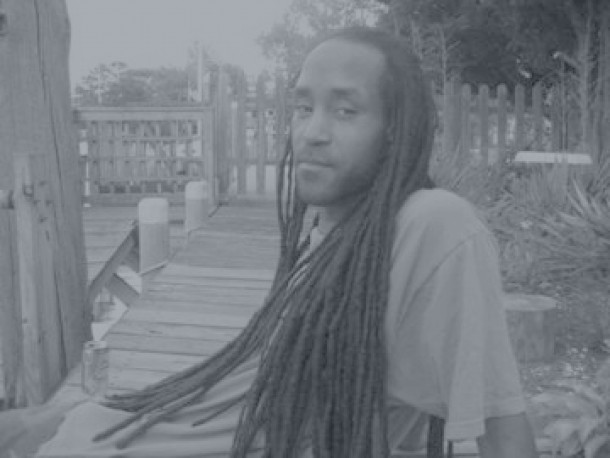







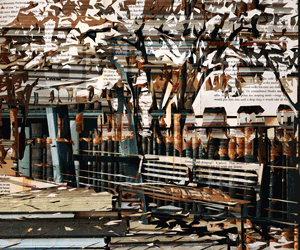
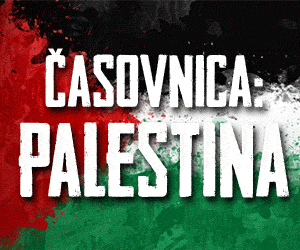
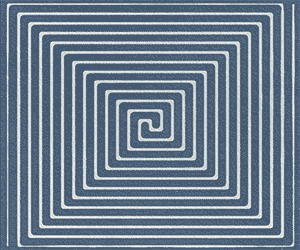






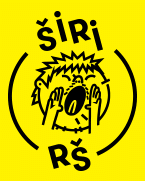
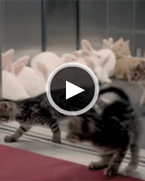







Prikaži Komentarje
Komentarji
masten intervju
once you enter his House, it becomes our House... :)
...and this is fresh! (:
Komentiraj